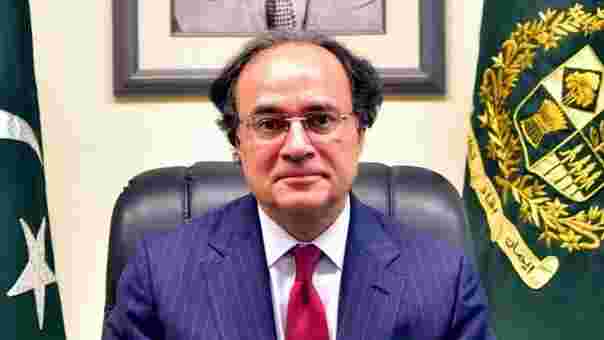Islamabad: Finance Minister Muhammad Aurangzeb has highlighted a growing sentiment among citizens, who are willing to pay higher taxes but are reluctant to interact with tax authorities.
Speaking during a review of the Tax Laws (Amendment) Bill, 2024 a day earlier, at the Senate Standing Committee on Finance held at the Parliament House on Tuesday, the finance minister emphasized the pressing need to restore credibility and trust in tax authorities.
“Many people approach us, expressing their willingness to contribute more to the national treasury. However, they prefer not to deal directly with the tax authority. Restoring this trust must begin with the Federal Board of Revenue (FBR). It’s not sustainable for citizens to avoid interacting with their country’s tax system,” Aurangzeb remarked.
The session was chaired by Senator Saleem Mandviwalla and attended by PTI Senators Mohsin Aziz and Shibli Faraz. The committee deliberated on sales tax provisions within the proposed bill, with further discussions scheduled for the next meeting.
Under the FBR’s transformation plan, Aurangzeb explained that top priority is being given to rebuilding confidence in the tax system. Technology will play a pivotal role in this transformation, aiming to curb corruption and harassment while broadening the tax base. The minister noted that the Tax Laws (Amendment) Bill, 2024, seeks to address revenue leakage and under-filing.
“The salaried class bears a heavy tax burden, including super tax and CVT on income,” the minister acknowledged. He stressed the importance of rationalizing the tax structure by targeting segments of society that currently evade taxes. “The bill introduces mechanisms to ensure compliance and expand the tax net,” he added.
Aurangzeb also mentioned ongoing efforts to downsize federal ministries, with updates expected by January 2025. This rightsizing initiative aims to optimize government operations and reduce expenses.
To enhance tax policy formulation, the finance minister announced plans to establish a Tax Policy Unit separate from the FBR. This unit, expected to launch within six months, will analyze the economic impact of tax policies. FBR Chairman Rashid Mahmood Langrial clarified that tax officials’ primary role remains tax collection, while the new unit will handle policy analysis.
Langrial assured the committee that the amendment bill would not introduce new taxes but would address non-filing and under-filing issues. He emphasized that 95% of households would remain unaffected by the proposed changes.
Aurangzeb expressed confidence that the reforms could raise Pakistan’s tax-to-GDP ratio from the current 10.3% to 13% within five years, noting that neighboring countries boast ratios as high as 18%. He stressed the importance of ensuring contributions from traditionally non-compliant sectors to avoid further burdening taxpayers like the manufacturing sector and salaried class.
“If we fail to tax non-compliant sectors, how will we manage future budgets? Should we continue increasing the burden on already overtaxed groups?” Aurangzeb questioned, underscoring the necessity of broad-based tax reforms to ensure economic sustainability.
